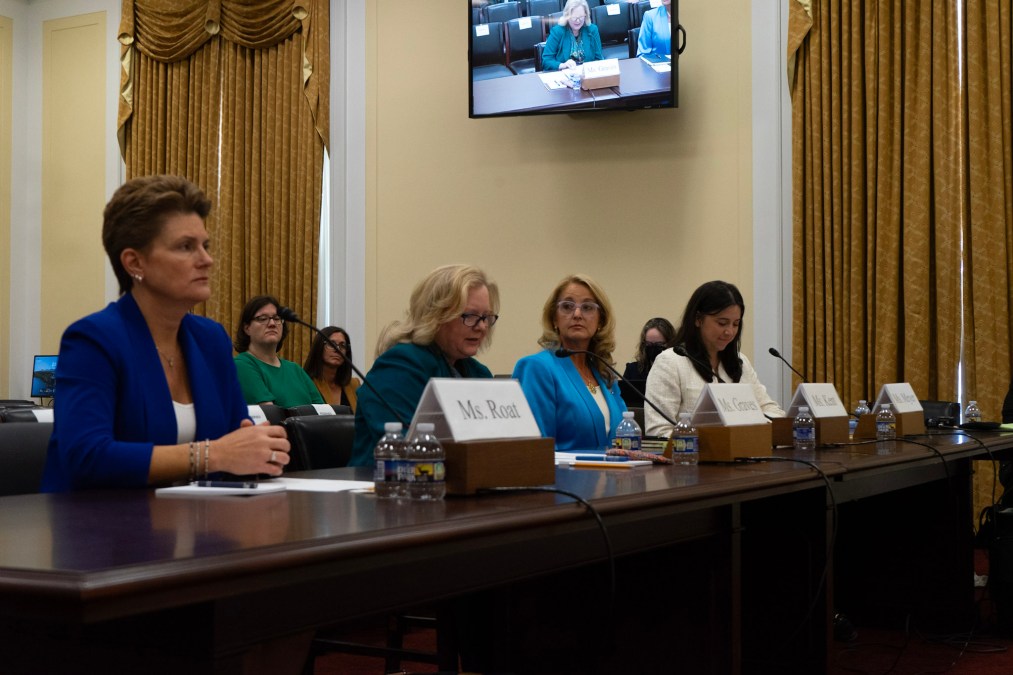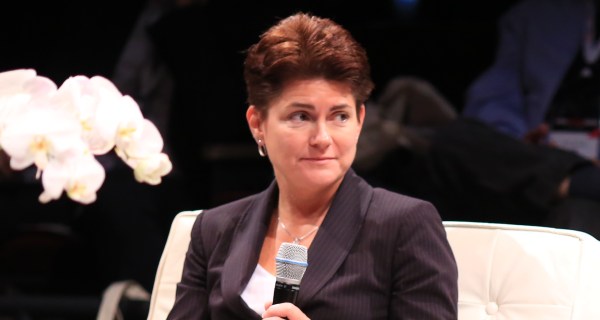Former federal technologists highlight TMF, shared tech solutions amid DOGE push

Promoting shared tech solutions across the federal government, supporting the Technology Modernization Fund, and bringing back 18F were among the recommendations several federal technology alumnae made to House lawmakers at a Tuesday hearing.
The hearing before the House Oversight Subcommittee on Cybersecurity, Information Technology, and Government Innovation focused on how the government could become more efficient via government IT modernization. It came as the Trump administration’s Department of Government Efficiency has marching orders to reshape the federal government through technology and software modernization.
While many of the panelists and lawmakers on both sides of the aisle stressed the need for bipartisanship in federal IT modernization, characterizations of DOGE’s efforts were split along party lines. Democrats criticized DOGE’s elimination of personnel and functions and access to sensitive data, and Republicans posed questions about how the group could explore modernization solutions.
Former officials testifying, meanwhile, offered several concrete recommendations to the lawmakers regarding management of IT modernization issues, particularly with respect to shared services and collaboration.
“I believe we are at another inflection point where there is even more opportunity to take the next step in IT modernization by examining the federal government through an enterprise portfolio lens,” said Maria Roat, former U.S. deputy federal chief information officer.
Roat, who served under the first Trump administration and the Biden administration, added that agencies have a history of working together and sharing information to achieve their goals, and the projects that TMF took on “reflected this interconnectedness.”
The TMF, which funds technology projects across the federal government, has generally had bipartisan support. Reps. Nancy Mace, R-S.C., and Gerry Connolly, D-Va., recently introduced a bill to extend the fund until 2032. That legislation would add new reporting requirements for the investments.
In response to a question from Mace, who chairs the subcommittee, about what the most impactful change would be for IT modernization, panelists gave several other brief examples.
Erie Meyer, former chief technologist at the Consumer Financial Protection Bureau and the Federal Trade Commission during the Biden administration, for example, pointed to GSA’s now-defunct 18F.
“I would rehire 18F, which is full of open-source software engineers, designers and the people I called when I was canceling contracts that were rotten to the core,” Meyer said. “They were the people that we could bring in quickly to keep things moving.”
18F was a group of consultants at the General Services Administration focused on improving digital services throughout the government, but was shuttered earlier this year amid DOGE efforts. Elon Musk, specifically, posted to X that the program had been “deleted.”
Meanwhile, in response to the same question from Mace, Suzette Kent, the federal chief information officer during the first Trump administration, said she would make addressing the Government Accountability Office’s report on aging legacy IT systems that are in need of modernization the first priority. “Plan it, fund it, and measure that it gets done,” she said.
Following the hearing, Kent told FedScoop that making it a priority for agencies to come up with a plan for how to address the systems in that report “is kind of an all-of-government effort.”
“It has to be a priority for the agency, it has to be a priority for funding, and it has to be a multi-year commitment of money,” Kent said. Those systems can’t be updated in a matter of months and need care to ensure that there aren’t service disruptions. “It is a significant piece of work that requires attention,” she told FedScoop.
In response to Mace’s question, Margie Graves, former deputy federal CIO, similarly said she “would take a portfolio view of” the same GAO list Kent mentioned and look for solutions that could be shared across multiple agencies if they were implemented. And adding to Graves’ response, Roat said the portfolio approach provides an opportunity to save money among agencies.
TMF generally had support among panelists. In opening remarks, Roat, Kent and Graves, who worked together during the first Trump administration, testified in coordinated remarks to highlight success stories with the TMF, shared services and benefits they can have for multiple agencies.
Graves, for example, highlighted examples of TMF projects at the Department of Energy, the Department of Homeland Security, and U.S. Customs and Border Protection. “The Management Act and the TMF have demonstrated success in this first cycle and version 2.0 will continue to move the needle,” Graves said.
Meyer also voiced support for TMF. In response to a question from Mace about bloated federal contracts that have employees sitting on the bench, Meyer said “funding TMF is the only way to fight back on” bad contracting practices “because it incentivizes the right practices in a flexible way.”
In her remarks and questions, Meyer was the only panelist to criticize the methodology of DOGE and said its actions in agencies like CFPB haven’t improved technology.
“What’s happening right now under DOGE is not modernization, it’s chaos. And it’s a chaos with a human cost,” Meyer said. “When DOGE arrived at my agency, they didn’t modernize anything. Instead, they broke the consumer complaint system that the CFPB runs, per congressional mandate.”
That resulted in at least 75 families that were facing foreclosure on their homes being “left in limbo.”
Democrats also criticized the efforts of DOGE as hindering progress in their questions and remarks.
Rep. Shontel Brown, D-Ohio, the ranking member of the panel, said that GAO has recommended that agencies should ensure they have capable IT workforces and that they shouldn’t be partisan. The mass probationary firings conducted by the Trump administration, however, have impacted that workforce.
“Many of them are the exact IT and cybersecurity experts we desperately need to modernize government systems and to respond to cyber threats,” Brown said. She asked Meyer why people should be “alarmed” at what happened in her former agency.
Meyer said DOGE immediately fired technologists when they came into CFPB.
“It was really concerning that the people who were supposed to be watching and protecting to make sure that seniors — all these communities that are typically targeted — were not being unfairly exploited on these big tech platforms, while brick-and-mortar financial companies had to follow a different set of rules,” Meyer said.






